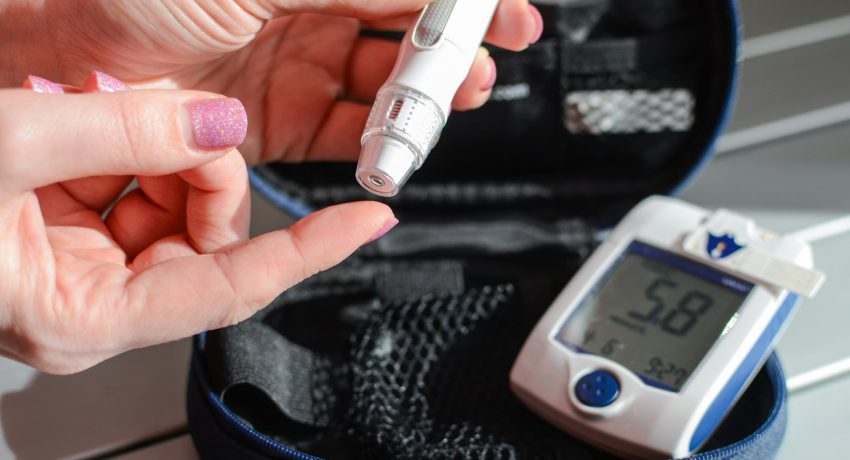Coping with Diabetes on a Daily Basis
Diabetes is a chronic condition that requires meticulous care and diligence in managing its impact on daily life. Whether you’ve been newly diagnosed or have been living with diabetes for years, the day-to-day management can often be overwhelming. However, with the right tools, knowledge, and mindset, you can navigate your journey with diabetes more smoothly. In this blog post, we will delve into various strategies for coping with diabetes on a daily basis, focusing on diet, exercise, medication adherence, mental health, and support systems.
The Importance of a Balanced Diet
One of the cornerstones of diabetes management is maintaining a healthy and balanced diet. The food you consume directly affects your blood sugar levels, making it crucial to choose what goes on your plate wisely.
Macronutrients: It’s important to understand the role of carbohydrates, proteins, and fats in your diet. Carbohydrates have the most significant impact on blood sugar, so you should focus on choosing complex carbohydrates like whole grains, vegetables, and legumes, which have a lower glycemic index. Proteins and healthy fats, such as those found in lean meats, fish, nuts, and seeds, help stabilize blood sugar levels.
Portion Control: Monitoring portion sizes can prevent spikes in blood sugar levels. Opt for smaller, more frequent meals throughout the day rather than large, infrequent ones.
Glycemic Index: Familiarize yourself with the glycemic index of foods, which measures how quickly a carbohydrate-containing food raises blood sugar levels. Foods with a low glycemic index, such as non-starchy vegetables and whole grains, are better choices for maintaining stable blood sugar.
Integrating Exercise into Your Routine
Physical activity is another critical aspect of diabetes management. Regular exercise helps the body use insulin more efficiently, lowers blood sugar levels, and has numerous other health benefits.
Consistency is Key: Aim for at least 150 minutes of moderate aerobic activity or 75 minutes of vigorous activity per week, as recommended by the American Diabetes Association. Activities like walking, swimming, cycling, and even household chores can be beneficial.
Strength Training: Incorporating resistance training exercises, such as weight lifting or body-weight exercises, at least twice a week can help build muscle mass, which in turn aids in better blood sugar control.
Monitor Blood Sugar Levels: Physical activity can impact blood sugar levels in different ways. Keep track of your levels before, during, and after exercise to understand how your body responds and make any necessary adjustments.
Medication Adherence
For many individuals managing diabetes, medication plays a vital role. Whether you take insulin, oral medications, or other prescribed treatments, adherence to your medication regimen is essential for keeping blood sugar levels within the target range.
Set Reminders: Use alarms, smartphone apps, or even sticky notes to remind yourself to take your medications on time. Consistency is critical to maintaining stable blood sugar levels.
Understand Your Medications: Learn about the medications you are taking—how they work, their potential side effects, and the correct dosages. This knowledge can empower you to manage your condition more effectively.
Communicate with Your Healthcare Team: Maintain open communication with your healthcare provider to address any concerns or side effects that may arise. Regular check-ins will help ensure that your treatment plan remains effective and appropriate for your needs.
Mental Health and Emotional Well-being
Living with diabetes can take a toll on mental health. Feelings of stress, anxiety, and even depression are not uncommon. It’s crucial to address these emotional challenges as part of your diabetes management plan.
Stress Management: High stress levels can negatively impact blood sugar control. Engage in stress-reducing activities such as yoga, meditation, deep breathing exercises, or hobbies you enjoy.
Seek Support: Joining a diabetes support group or seeking counseling can provide a sense of community and understanding. Sharing your experiences with others who are going through similar challenges can be incredibly comforting.
Professional Help: If you find that you’re struggling with your mental health, don’t hesitate to seek help from a mental health professional. Cognitive-behavioral therapy (CBT) and other therapeutic approaches can be highly beneficial.
Building a Support System
A strong support system can make a tremendous difference in your diabetes management journey.
Family and Friends: Educate your family and friends about diabetes so they understand the challenges you face and can offer informed support. Their encouragement can be a powerful motivator.
Healthcare Team: Your healthcare team, including your endocrinologist, primary care physician, diabetes educator, nutritionist, and pharmacist, plays a crucial role. Regular appointments and open communication ensure that you are receiving comprehensive care.
Technology: Utilize technology to your advantage. Continuous glucose monitors (CGMs), insulin pumps, and mobile apps can help you track your blood sugar levels, manage your diet, and remind you to take your medications.
Staying Informed
Diabetes management is an ever-evolving field. Staying informed about the latest research, treatments, and recommendations can empower you to make better decisions about your health.
Education: Attend workshops, webinars, and read reputable sources about diabetes care. This ongoing education will broaden your understanding and help you stay updated on new advancements.
Ask Questions: During healthcare appointments, don’t hesitate to ask questions. The more you know about your condition, the better equipped you’ll be to manage it effectively.
Closing Thoughts
Coping with diabetes on a daily basis is undoubtedly challenging, but it’s a challenge that can be met with dedication, knowledge, and support. By focusing on a balanced diet, regular exercise, medication adherence, mental health, and building a robust support system, you can take proactive steps towards a healthier and more fulfilling life. Remember, you’re not alone in this journey. With the right tools and strategies, you can manage your diabetes effectively and live a vibrant, active life.




